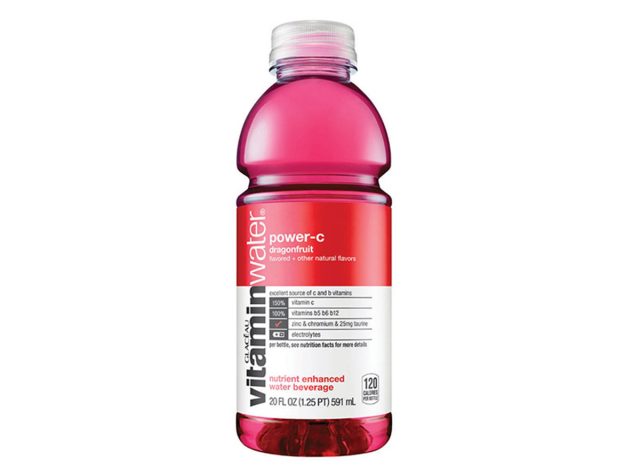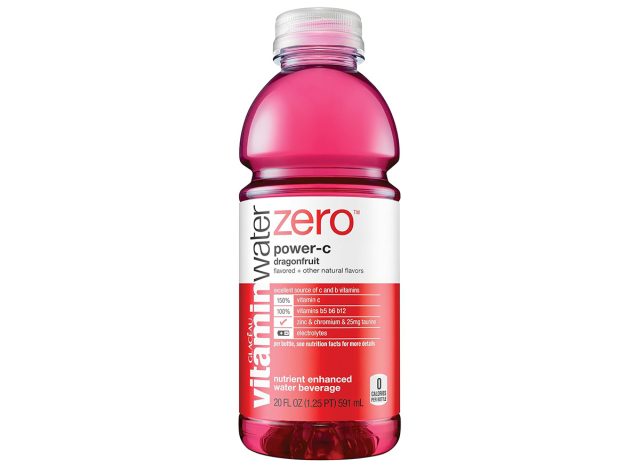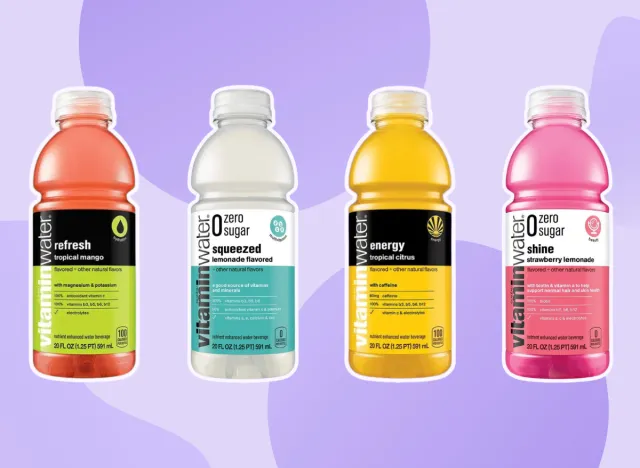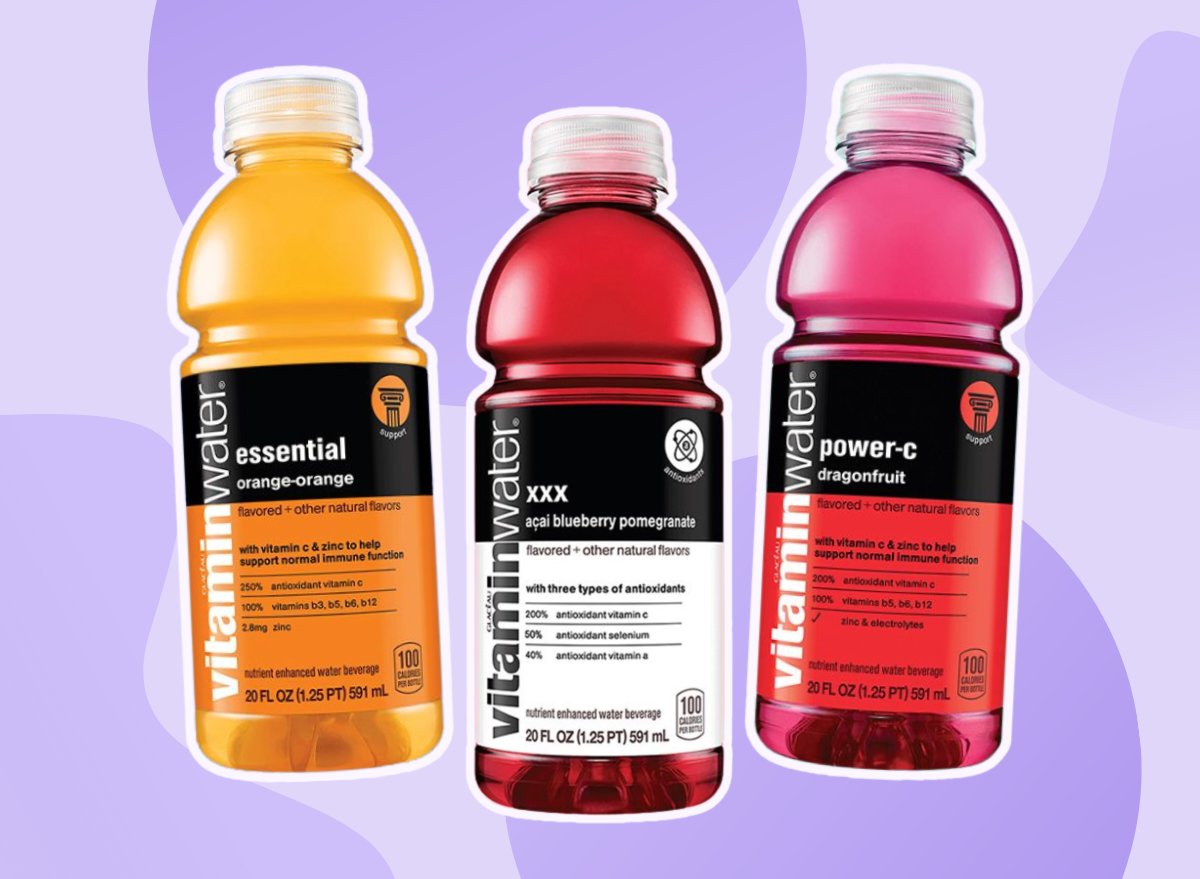Any product recommendations in this post are those of the writer and/or the experts interviewed and do not contain affiliate links. What this means: If you buy something using these links, we will not earn a commission.
Like many health-related products, Vitamin Water’s popularity has skyrocketed over the past decade. Marketed as a healthy alternative to traditional sugary drinks, Vitamin Water is often perceived as a healthier option due to its high vitamin and mineral content. This awareness, combined with marketing campaigns and endorsements by celebrities such as 50 Cent, has established Vitamin Water as the go-to drink for anyone looking to increase their vitamin intake.
Vitamin Water’s main appeal is its promise of health benefits. Unlike traditional soft drinks, which are often free of high fructose corn syrup and calories, Vitamin Water’s proponents claim that it contains a variety of essential nutrients. With a variety of fruit flavors and vitamins, the drink seems like an easy and fun way to increase your daily nutritional intake without the guilt that often comes with drinking soda.
But as its popularity grows, so do questions about its actual health benefits, and it’s important to be aware of the potential drawbacks. Read on to learn about Vitamin Water’s ingredients and nutritional value, and to find out whether you should drink Vitamin Water the next time you’re craving a cold drink.
What is Vitamin Water?
Vitamin Water is a flavored water drink that is fortified with vitamins and minerals. There are many different types, but one of the most popular is Coca-Cola’s Glaceau Vitamin Water.
Vitamin Water is typically marketed as a healthier alternative to soda and sports drinks, which may appeal to people looking for a convenient way to boost their nutritional intake while staying hydrated.
A key element of Vitaminwater is its vitamin and mineral content. Different flavours have different vitamin and mineral content, but popular fortifying ingredients include vitamin C, B vitamins and electrolytes such as potassium and magnesium.
Another important thing to consider is whether to choose a regular or unsweetened version. Many Vitamin Water varieties contain added sugar, which can lead to an increased calorie intake. However, some varieties, such as Shine Strawberry Lemonade, use natural sweeteners like Monk Fruit Extract and Stevia, making it an option for those concerned about their sugar intake.
Depending on the type, vitamin water contains a variety of ingredients, including vitamins and minerals, as well as taurine, guarana, caffeine, and soluble corn fiber (a prebiotic fiber that may promote the growth of good bacteria in the gut).
Vitamin Water Nutrition Facts
Glaceau Vitamin Water comes in two flavors: fruit-flavored with Monk Fruit and Stevia, and unsweetened flavored water. Because the two are quite different, we provide nutritional information for both.


Nutrition Facts (per 20 oz bottle):
calorie: 100
fat: 0 g (Saturated Fatty Acids: 0 g)
sodium: 0mg
carbohydrates: 27 g (Dietary fiber: 0 g, Carbohydrates: 27 g)
protein: 0 grams
The regular version of Glaceau Vitamin Water has 27 grams of added sugar, more than half the 50-gram daily limit recommended by the Dietary Guidelines for Americans. And considering that some people drink more than one bottle of Vitamin Water per day, that sugar amount adds up quickly.


Nutrition Facts (per 20 oz bottle):
calorie: 0
fat: 0 g (Saturated Fatty Acids: 0 g)
sodium: 0mg
carbohydrates: 0 g (Dietary fiber: 0 g, Carbohydrates: 0 g)
protein: 0 grams
The unsweetened version of Vitaminwater may be a better option for weight management compared to the full-sugar version because it contains no unnecessary calories.
Health Benefits of Vitamin Water
Vitaminwater has several potential benefits.
Hydration
Because Vitamin Water is water-based, it’s guaranteed to be effective at keeping you hydrated. For those who don’t like the taste of plain water, Vitamin Water is a fun, flavorful way to stay hydrated.
Related: 10 Best Sparkling Water Brands, Picked by Nutritionists
Provides nutritional supplements
Vitamin Water is fortified with vitamins and minerals, so when consumed as part of a balanced diet, it can help fill dietary deficiencies. Many types of Vitamin Water contain Vitamin C, a powerful antioxidant that protects cells from damage. Some types of Vitamin Water also contain other antioxidants.
Energy Boost
Vitamin Water often contains B vitamins, which are involved in energy metabolism, and some people find they give themselves an energy boost. Some types of Vitamin Water also contain caffeine, which can provide an extra energy boost.
Post-workout benefits
Vitamin Water may be more effective when consumed during or after intense exercise, when the body needs to replenish lost electrolytes, glucose, and fluids.
Health Drawbacks of Vitamin Water
Despite being touted as a healthier alternative to traditional soda, Vitamin Water does have some drawbacks to be aware of.
High in sugar
Many types of Vitaminwater contain large amounts of added sugar, comparable to the amount found in traditional soda.
For example, a typical 20-ounce bottle of Vitamin Water contains about 30 grams of added sugars, more than half of the recommended daily intake of 50 grams. While an occasional indulgence is OK, consuming too much added sugar can contribute to the development of metabolic diseases like type 2 diabetes — not to mention significantly increasing your risk of tooth decay.
Possible vitamin overdose
Another potential issue is the vitamin content. While getting your vitamins from a drink may seem like a healthy choice, consuming too much of certain vitamins and minerals can cause problems, especially for people with kidney problems. For example, some types of Vitamin Water contain electrolytes such as potassium. While too much potassium is typically not a problem for most people, it can be dangerous for people with kidney disease, especially if consumed in excess.
Other Vitamin Waters contain over 300% of the recommended daily intake of certain vitamins, including Vitamin B. Considering that some people drink multiple bottles of Vitamin Water every day, you could be getting far more of a particular vitamin than is recommended. While this doesn’t necessarily cause a problem (excess Vitamin B is excreted in the urine), spending money on something your body doesn’t need may not be the best choice.
The risks of dietary imbalance
Relying on Vitamin Water for your nutrition can lead to an unbalanced diet. Whole foods like fruits, vegetables, whole grains, and lean proteins contain not only vitamins and minerals, but also fiber, antioxidants, and other nutrients that support overall health. If you replace these whole foods with Vitamin Water, you could be missing out on the nutritional benefits of whole foods.
Is Vitamin Water Good for You?


Overall, Vitamin Water is a convenient source of hydration and is packed with vitamins, but its health benefits are often overshadowed by its high content of added sugars and the potential risk of vitamin overdose if you drink more than one bottle per day.
To maximize the health benefits, it’s best to drink Vitamin Water in moderation and choose unsweetened version when possible.
If you’re looking to naturally hydrate, consider infusing your water with fruits, vegetables, and herbs to add flavor without adding sugar or calories. If you prefer something warm, consider herbal tea. If you need electrolyte replacement, try coconut water, which has less sugar than Vitamin Water. Finally, if you’re looking for a carbonated drink, try sparkling water with a splash of fruit juice as a lower sugar alternative to Vitamin Water.


